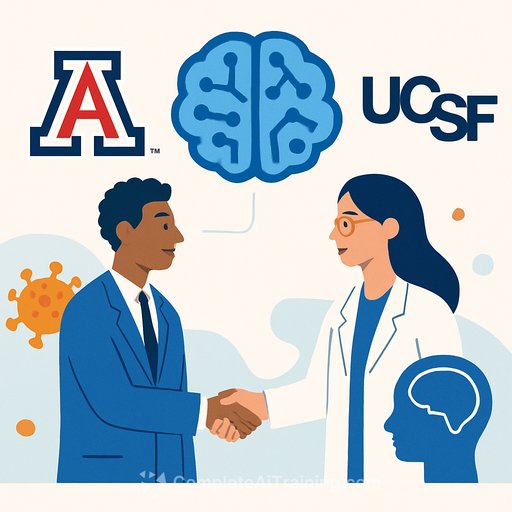UT Austin Advances AI Research to Enhance Accuracy and Reliability in Science and Technology
The National Science Foundation (NSF) AI Institute for Foundations of Machine Learning (IFML), based at The University of Texas at Austin, has secured continued funding to improve artificial intelligence models. This research focuses on increasing AI accuracy and reliability, aiming to accelerate developments in drug discovery, clinical diagnostics, and other scientific fields.
Located in the Gates-Dell Complex at UT Austin, IFML is developing foundational AI systems. Their work ranges from mathematical innovations in diffusion models for image denoising to algorithms that enhance the speed and precision of magnetic resonance imaging (MRI). These advances are expected to have significant applications in biotechnology and healthcare.
Institutional Commitment to AI Innovation and Workforce Development
David Vanden Bout, UT’s interim executive vice president and provost, emphasized the university’s dedication to preparing students for an AI-driven future. He notes that NSF’s support will enable faculty and students to push the frontiers of machine learning, impacting diverse areas of science and technology.
The renewed funding will also support training best practices for large AI models, improve the robustness and interpretability of deep networks, and advance domain adaptation in protein engineering and health-related AI applications. IFML plans to expand its postdoctoral and graduate fellowship programs and boost workforce development efforts, complementing UT’s recently launched Master of Science in Artificial Intelligence degree program.
Commitment to Open-Source AI Development
IFML Director Adam Klivans highlights the institute’s focus on open-source tools and models to ensure broad accessibility. This approach supports a wide range of industries by making advanced AI techniques available beyond proprietary systems.
IFML is one of fewer than 30 NSF-led National Artificial Intelligence Research Institutes nationwide and one of two located at UT Austin. The institute collaborates with leading universities and research centers, including the University of Washington, Stanford University, Microsoft Research, and the California Institute of Technology.
Key Contributions and Future Directions
Since its founding, IFML has contributed to generative AI research, notably through OpenCLIP and DataComp—tools that enhance the integration of image and text understanding in AI systems. With a new $20 million investment from NSF over five years, IFML will continue to build on this foundation, reinforcing its role as a leader in foundational machine learning research.
- Improving training and fine-tuning methods for large AI models
- Enhancing deep network robustness and interpretability
- Advancing AI applications in protein engineering and healthcare
- Expanding support for emerging AI researchers and workforce development
For professionals interested in deepening their AI expertise and staying current with foundational advances, exploring specialized training programs such as those offered at Complete AI Training can provide practical skills aligned with industry and research demands.
Your membership also unlocks:






